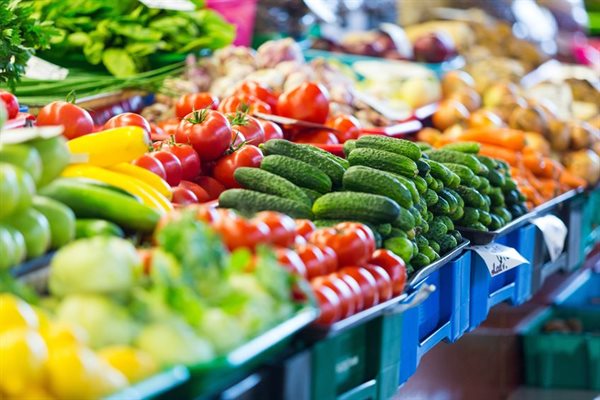
Driven by this belief, Oribi Village Incubator, the Wakanda Food Accelerator and the Southern Africa Food Lab of the University of Stellenbosch are collectively calling upon food sector innovators to work together, yet separately, on co-creating sustainable and disruptive solutions to help South Africans become more food secure in the context of the Covid-19 crisis.
According to the organisations, besides human health and our GDP, the coronavirus pandemic is severely impacting South Africa’s already dire food security levels. Last year, 50% of the population was hungry or at risk of going hungry, the latest South African National Health and Nutrition Examination Survey shows. This is likely to worsen due to the Covid-19 pandemic, which has already slowed down our economy. There is also a genuine fear the 21-day lockdown, which came into effect at 23:59 on 26 March, will add to this, despite food producers being exempt from these measures.
“As we collectively help to stop the spread of the virus by staying home, let’s use our skills and the power of technology to drive, develop and fast-track innovations that ensure people have enough food on the table – today and tomorrow,” says Ellen Fischat, managing director at Oribi Village Incubator in Cape Town. “Let’s treat the next three weeks as a period of growth, disruption and innovation, not as one of stagnation. This mindset will help us come out of this crisis stronger, as individuals and as a nation.”
She explains that for this purpose, Oribi Village Incubator, Wakanda Food Incubator and the Southern Africa Food Labs have developed an entrepreneurship and innovation challenge.
The #BridgingTheGaps challenge is focused on proactively addressing and reshaping how we produce, distribute, process and consume food, and is open to everyone – from small-scale producers, logistics and market access players, chefs, restaurants, food sellers and processors, food technicians and civil society players.
The challenge comprises weekly content brainstorm sessions between participants and partners, who all participate remotely. In the first week, the Southern Africa Food Labs will provide insights into the current state of South African food system, and in the second week, Oribi Village will discuss essential social business strategy shifts related to the Covid-19 context. In the third week, the Wakanda Food Accelerator will provide all participants with practical advice on how to define, develop, implement and scale their proposed solutions.
The submissions will subsequently be evaluated and assessed on social impact, feasibility, viability, scalability, sustainability and creativity. Two winning ideas will each take home six months’ worth of paid-for incubator and accelerator support, to be used to develop and implement their solution, as well as six months of co-working space in Cape Town or Johannesburg. In addition, the two winners will be allowed to pitch their solution to local and international investors in November 2020 and attend the Design Thinking Workshop, which revolves around food security innovation.
Miles Kubheka, Wakanda’s founder and director, says it was a no-brainer to get involved in this initiative. “When looking for local solutions for large local and multi-faceted problems such as food insecurity, you need partners who have the same passion but bring different strengths to the table,” he says, noting that he worries about the impact of corona on South Africa.
“According to friends all over the world, especially those living in countries most affected by the pandemic, South Africa has no idea of what is coming its way. As a doer, I don’t want to remain on the side-line.”
Scott Drimie, director of Southern Africa Food Lab, agrees the lockdown offers the perfect opportunity for innovators to work together, yet separately, on fighting problems such as hunger and food insecurity. “We need to use this corona crisis to ask questions about what we should be doing to strengthen our resilience in the face of an increasingly uncertain future,” he says, noting the focus shouldn’t be just on reducing the immediate impact of current problems.
“The evidence that the climate collapse will drive the transboundary spread of diseases in animals, plants and humans suggests that our future holds more of the same. So yes, this is the best time to innovate and work to find short- and long-term solutions,” he concludes.
Visit Oribi Incubator’s website for more information on the challenge and to apply.